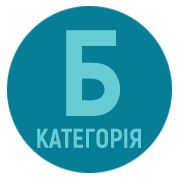ORAL NARRATIVE: THE INTERDISCIPLINARY NATURE OF RESEARCH AND THE PROBLEM OF DEFINITION
DOI:
https://doi.org/10.32782/2307-1222.2024-57-7Keywords:
narratology, narrative, interdisciplinarity, definition, object of researchAbstract
The article is dedicated to the investigation of the principal vectors of narrative. Being universal fenomenon, the oral narrative has become the object of research in a number of social and humanitarian disciplines such as history, psychology, linguistics, folkloristics, etc. Moreover each of these disciplines has already developed or it is forming its own methodological base for the narrative text studying which reveals not only the individual experience of a person, but, what is more, it reproduces the collective experience in which the general cultural and communicative intentions of the narrator were synthesized. The aim of this article is to anylise the peculiarities of the narrative as the important thing for solving a wide range of problematic issues and to establish the essence of its definition. The universality of the story itself or the narrative is defined in this work. The author outlines and confirms his summarising based on the studies of famous Ukrainian and foreign scholars who conduct their investigations eithor in the field of philology or the reseaches of other scientific disciplines. The interdisciplinary nature of narratology and the object of its research – narrative – is confirmed by philosophical science according to which narratives are considered as human experience organizing mechanisms. They are local due to the historical ways of their reception as they are characterized by social instrumentality and pragmatic potential. The research shows that as a means of psychoanalytic therapy, oral narratives can be treated as a part for studying communicatively important individual cases of a person’s life with further constructing typical mental structure models. The linguistic potential is highlighted as the important thing in the narrative studies. The results show that from a linguistic perspective the linguistic abilities are considered as a way of representing past experience and are equivalents to individual speech acts. In the same way, oral history and folklore studies find their expression, but it should be emphasized that the object of their research – stories about experiences – are interpreted from different perspectives: for historians it is important to find out information about certain events of the past with the help of sources, and folklorists , working in the field of cultural anthropology, trace the manifestations of worldview and certain types of cultures. Furthermore, oral story and folklore study are represented in the same way of their expression. It should be emphasized that the object of their researches – stories about life experiences – are interpreted from different perspectives. Historians focus on finding out the information about certain events of the past based on the factual knowledge. Folklorists, working in the field of cultural anthropology, draw their attention to the manifestations of worldview and certain types of cultures.
References
Папуша І. Modus ponens. Нариси з наратології. Тернопіль : Крок, 2013. 259 с.
Лабащук О. Натальний наратив і усна традиція: синтактика, семантика, прагматика : монографія. Тернопіль : Підручники і посібники, 2013. 320 с.
Кузьменко О. Епізод як структурна домінанта фольклорних наративів про Першу світову війну. URL: https://nz.lviv.ua/archiv/2012-2/14.pdf.
Барт Р. Від твору до тексту (переклад Юрка Ґудзя). Антологія світової літературно-критичної думки ХХ ст. Львів : Літопис, 2001. 832 с.
Папуша І. Міжнародна наратологія: проблеми дефініції. Теорія літератури, компаративістика, україністика: Збірник наукових праць з нагоди сімдесятиріччя доктора філологічних наук, професора, академіка Академії вищої школи України Романа Громʼяка. Studia methodologica. Вип. 19. Тернопіль : Підручники і посібники, 2007. 400 с.
Єгорова А.В. Теоретико-методологічні засади «наративного повороту». Науковий часопис Національного педагогічного університету імені М.П. Драгоманова. Серія 9: Сучасні тенденції розвитку мов. 2013. Вип. 10. С. 92–95.
Lyotard, J.-F. The Postmodern Condition. Minneapolis : University of Minnesota Press, 1983.
Brockmeier, J. Autobiography, narrative and the Freudian conception of life history. Philosophy, Psychiatry, & Psychology. 1983. № 4. P. 175–200.
Schmid W. Elemente der Narratologie, 2. Aufl. (de Gruyter Studienbuch), Berlin/New York, 2008.
Franzosi R. Narrative Analysis – Or Why (And How) Sociologists Should be Interested in Narrative. Annual Review of Sociology. 1998. Vol. 24. P. 517–554. URL: https://www.jstor.org/stable/223492.
Lévi-Strauss C. Structural Anthropology’, trans. Claire Jacobson and Brooke Grundfest Schoepf, New York : Basic Books, 1963.
Labov W., Waletzky J. Oral Versions of Personal Experience: Three Decades of Narrative Analysis // Special Volume of a Journal of Narrative and Life History. 1997. Vol. 7.
Rusen J. Narrativity and Objectivity in Historical Studies. URL: www.ruf.rice.edu/~culture/papers/Rusen.html.
Давидюк Л. Наративний дискурс усних неказкових оповідань. Science and Education a New Dimension. Philology. 2017. V(39). Issue 143.
Гром’як Р.Т. Літературознавчий словник-довідник. Київ : ВЦ «Академія», 2006. 752 с.
Martínez, M. Erzählen im Journalismus. In : Klein, Christian/Martínez, Martías (Hrsg.) : Wirklichkeitserzählungen. Felder, Formen und Funktionen nicht-literarischen Erzählens. Stuttgart : Metzler, 2009. P. 179–191.
Prince G. A Dictionary of Narratology. Lincoln: University of Nebraska Press, 1989, 126 p.
Kückelhaus, Marcel : Narrative aus linguistischer Perspektive. Eine diskus- und korpusanalytische Untersuchung zu sprachlichen Merkmalen und salienten Sprachgebrauchsmustern. Heidelberg: Universitätsbibliothek Heidelberg (=Hochschulschrift, ), 2002.










